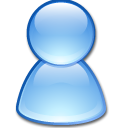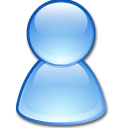,
Impact of Data Sources on Citation Counts and Rankings of LIS Faculty: Web of Science vs. Scopus and Google Scholar
(2007)
Аннотация
The Institute for Scientific Information's (ISI) citation databases have been used for decades as a starting point and often as the only tools for locating citations and/or conducting citation analyses. ISI databases (or Web of Science WoS), however, may no longer be sufficient because new databases and tools that allow citation searching are now available. Using citations to the work of 25 library and information science faculty members as a case study, this paper examines the effects of using Scopus and Google Scholar (GS) on the citation counts and rankings of scholars as measured by WoS. Overall, more than 10,000 citing and purportedly citing documents were examined. Results show that Scopus significantly alters the relative ranking of those scholars that appear in the middle of the rankings and that GS stands out in its coverage of conference proceedings as well as international, non-English language journals. The use of Scopus and GS, in addition to WoS, helps reveal a more accurate and comprehensive picture of the scholarly impact of authors. WoS data took about 100 hours of collecting and processing time, Scopus consumed 200 hours, and GS a grueling 3,000 hours.

